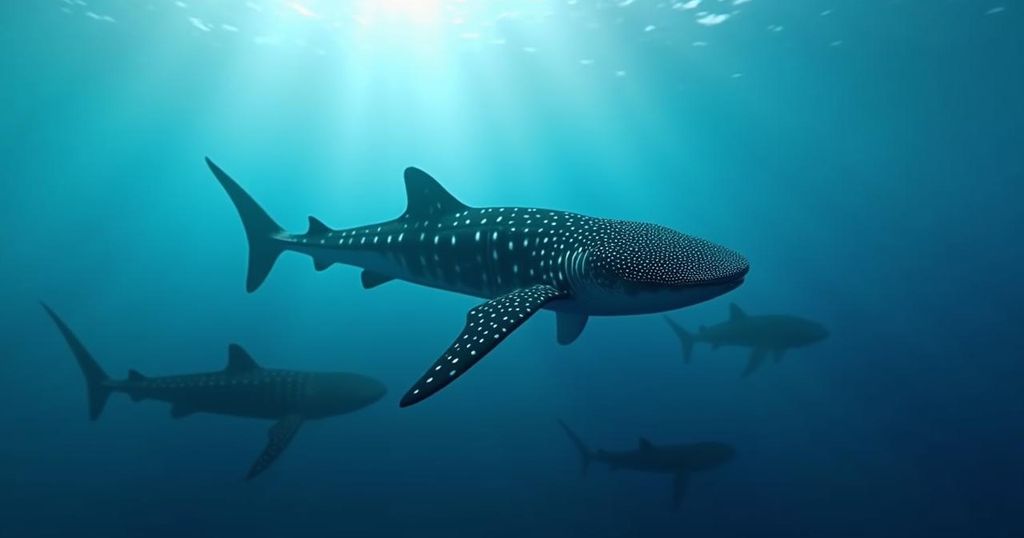Enhancing Awareness on Whale Shark Collisions Amid Rising Ocean Temperatures
A study by the University of Southampton and Marine Biological Association indicates that climate change could drastically increase the risk of collisions between whale sharks and large shipping vessels. Projected habitat shifts may lead to a 15,000-fold increase in overlaps between whale sharks and shipping routes by 2100, particularly under high emissions scenarios. Areas in Asia may suffer significant habitat losses, while sustainable practices could yield more favorable outcomes in Europe. The findings emphasize the importance of integrating climate considerations into marine conservation efforts.
Recent studies have highlighted a significant risk to whale sharks due to increased maritime traffic as ocean temperatures rise. According to researchers from the University of Southampton and the Marine Biological Association, the threat of collisions between whale sharks, which are already classified as endangered, and large vessels could escalate dramatically by the end of the century, with projections indicating a possible 15,000-fold increase in overlaps between whale shark habitats and shipping lanes. The lead researcher, Dr. Freya Womersley, stated that under high emission scenarios, shifts in whale shark habitats could lead to severe core habitat losses and heightened encounters with shipping traffic. Whale sharks are known for their mobility and adaptability to environmental changes, yet they are particularly susceptible to fatal collisions with ships. The research involved analyzing satellite tracking data of whale sharks alongside global climate models to assess potential habitat distributions under three future climate scenarios. The findings suggest that, under a high emissions scenario, some regions could experience over a 50% loss of whale shark habitats by the year 2100, with Asia being the most vulnerable area. Conversely, sustainable development practices in line with a target of limiting global warming to 2°C could help certain regions, particularly in Europe, to gain suitable habitats. The researchers also coupled the habitat distribution data with shipping traffic density to determine whether whale sharks would migrate into increasingly trafficked areas, raising the risk of ship strikes. The results revealed that while some areas experienced a reduction in shipping co-occurrences, overall, the likelihood of whale sharks encountering ships increased across all future climate scenarios, regardless of shipping activity levels.
The risk of shipping collisions poses a serious challenge to whale sharks, the largest fish species in the world, which are already endangered due to various environmental pressures. These gentle giants are particularly vulnerable to strikes from large ships, which can lead to serious injury or death. As ocean temperatures rise due to climate change, whale sharks are anticipated to shift habitats, potentially moving into areas with heavy maritime traffic. Understanding the implications of these shifts is critical for effective conservation efforts and to mitigate risks associated with human activities in marine environments.
In conclusion, the study underscores the profound impacts of climate change on marine biodiversity, particularly for vulnerable species like the whale shark. By anticipating habitat shifts and the corresponding increase in risks associated with shipping traffic, conservation strategies can be more effectively aligned with environmental changes. Furthermore, proactive measures to reduce greenhouse gas emissions could help mitigate the negative effects of climate change on whale sharks and other marine species, ultimately promoting better management of endangered species in relation to human activities.
Original Source: www.eurasiareview.com




Post Comment